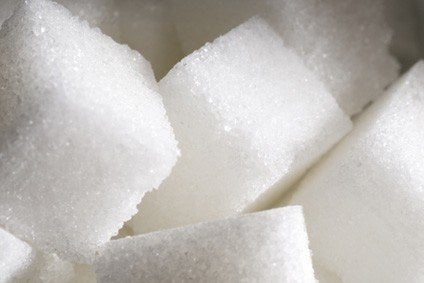
A panel advising the UK government on nutrition has called for the recommendation on daily sugar intake to be halved.
The Scientific Advisory Committee on Nutrition (SACN) has said free sugars should account for no more than 5% of daily energy intake.

Discover B2B Marketing That Performs
Combine business intelligence and editorial excellence to reach engaged professionals across 36 leading media platforms.
The committee said the move was needed to "help address the growing obesity and diabetes crises and to reduce the risk of tooth decay".
Free sugars are those added to food or those naturally present in honey, syrups and unsweetened fruit juices, but exclude lactose in milk and milk products.
The UK's Department of Health and the Food Standards Agency had asked the SACN committee to examine the latest evidence on the links between consumption of carbohydrates, sugars, starch and fibre and heart disease, type 2 diabetes, bowel health and tooth decay.
The committee said the higher the proportion of sugars in the diet, the greater the risk of high energy intake. It said high levels of sugar consumption are associated with a greater risk of tooth decay. On drinks, the SACN committee said consuming high-sugar beverages results in weight gain and increases in BMI in teenagers and children. Drinking too many high-sugar beverages increases the risk of developing type 2 diabetes, it said.

US Tariffs are shifting - will you react or anticipate?
Don’t let policy changes catch you off guard. Stay proactive with real-time data and expert analysis.
By GlobalData"The evidence is stark – too much sugar is harmful to health and we all need to cut back," Professor Ian Macdonald, chair of the SACN carbohydrates and health working group, said. "The clear and consistent link between a high-sugar diet and conditions like obesity and type 2 diabetes is the wake-up call we need to rethink our diet. Cut down on sugars, increase fibre and we’ll all have a better chance of living longer, healthier lives."
In March, the World Health Organization announced its guidance on sugar intake. It recommended adults and children reduce their daily intake of free sugars to less than 10% of their total energy intake.
The WHO also said a further reduction to below 5% (roughly 25 grams or six teaspoons) a day would "provide additional health benefits". However, it added that part of its recommendation was "conditional", prompting criticism from activists.
The SACN committee also looked at the amount of carbohydrates and fibre being consumed. It said the current recommendation starchy carbohydrates – wholegrain where possible – should form 50% of daily calorie intake is maintained.
It said consumers aged 16 and over increase their intake of fibre to 30g a day, 25g for 11- to 15-year-olds, 20g for 5- to 11-year-olds and 15g for 2- to 5-year olds.
Ian Wright, director general of the Food and Drink Federation, the body representing manufacturers operating in the UK, said the report "confirms what we already know – that sugars are a contributing factor to tooth decay and if consumed in excess can lead to weight gain".
Wright said: "SACN recommends a reduction in ‘free sugars’ in the diet as one way of lowering energy (calorie) intake to help reduce obesity. The recommendation is also aimed at improving dental health. They make it clear that there is nothing specific about the effect of sugars when energy intake is held constant.
"Companies’ ongoing work to lower calories in foods and drinks, including reducing sugars, and to offer a range of portion sizes and low and zero calorie options, supports this ambition. Food and drink producers have been fortifying products with added fibre for years.
"To meet the stretching dietary goals that SACN recommends will mean changes to the way people eat. Published diet modelling shows that people can reduce free sugars and boost fibre in the diet in a number of ways while still fitting in the foods and drink they enjoy."
He added: "The most thorough scientific review of carbohydrates and health carried out in recent years should leave people in no doubt that sugars can be enjoyed safely as part of a varied and balanced diet. Sensationalist commentaries on this everyday ingredient that are not based in science should now be relegated to the past. Demonising any one ingredient in the obesity debate isn’t helpful."
Pressure group Action on Sugar said the UK government should introduce a target for sugar in food and drinks to be cut by 40% by 2020. It also called for the end of "all advertising and promotion of unhealthy foods and drinks to children and adolescents" and for a 20% duty on sugary drinks. It claimed a tax in Mexico had already reduced consumption by 12%.
Action on Sugar chairman Professor Graham MacGregor said: "These actions will prevent obesity and type 2 diabetes and will ensure the UK food industry leads the world as it has been doing for salt reduction. The food and drink industry does not want to cause any more harm to its customers; they are waiting to be told what to do and it is essential that they are given a level-playing field so that they are all working towards the same goal. This policy must therefore be enforced by a strong independent agency."





